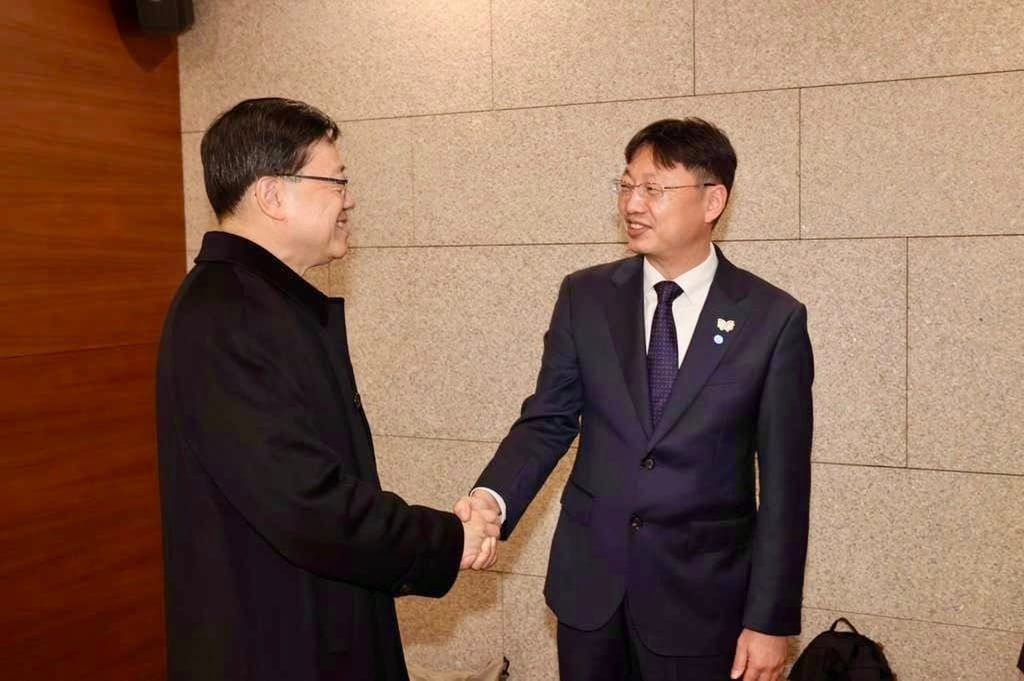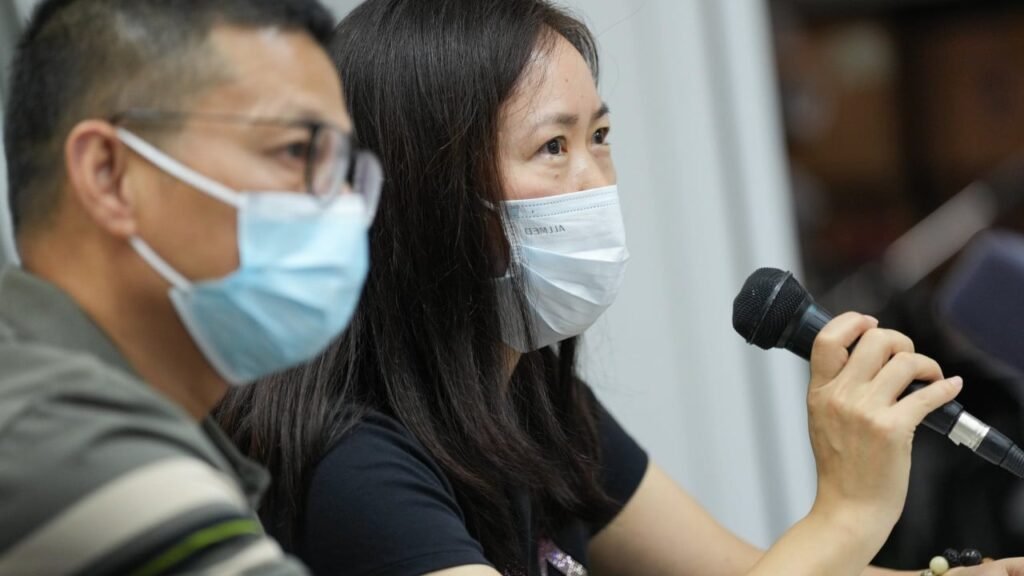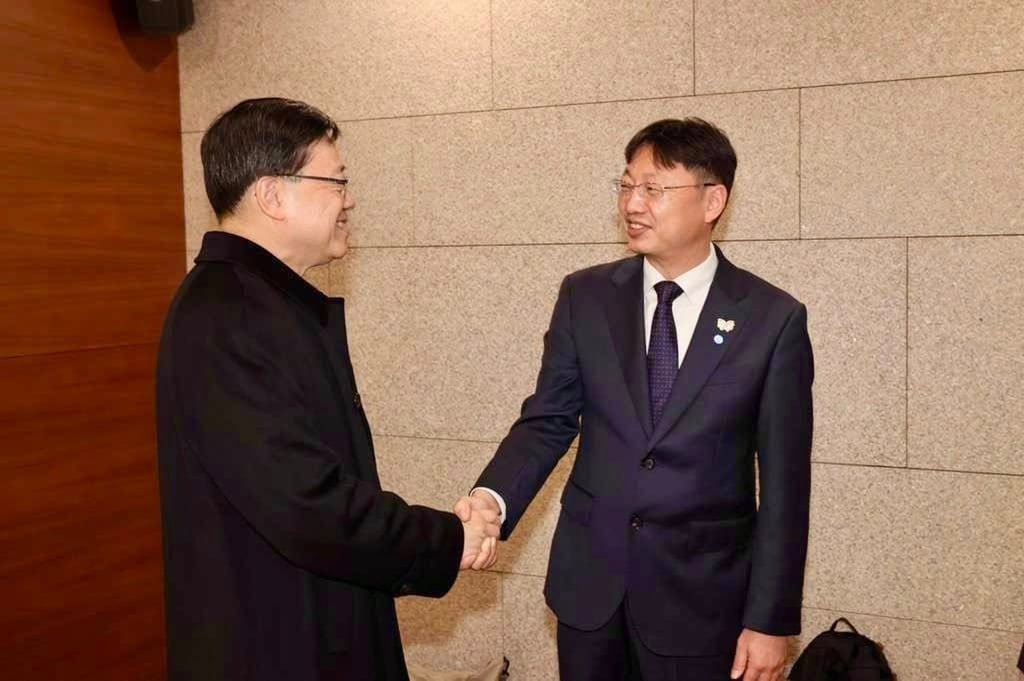①What are the main activities of Paul Chan Mo-po, Financial Secretary of the Hong Kong Special Administrative Region (HKSAR), during his visit to Saudi Arabia? ②What is Hong Kong’s role in China-Saudi cooperation?
Cailian Press reported on October 29 (edited by Tong Gu) that Paul Chan Mo-po, Financial Secretary of the HKSAR, led a delegation to visit Saudi Arabia and attended the Future Investment Initiative Conference held in Riyadh yesterday. He spoke at a thematic discussion session and met with several senior local officials and business leaders.
In the morning, Chan attended the opening ceremony of the Future Investment Initiative Conference and delivered remarks at the session titled ‘The Changemakers’ Council: The Key Role of Public-Private Partnerships.’ This session allowed government and business leaders from different regions to share how public-private partnerships can promote economic and social development, energy transition, and the growth of technology industries such as artificial intelligence and biotechnology amid geopolitical and technological changes.
 During the session, Chan shared Hong Kong’s experience in various public-private partnership models, including the ‘Build-Operate-Transfer’ model and the railway plus property development approach, which provide incentives for private markets and foster infrastructure development.
During the session, Chan shared Hong Kong’s experience in various public-private partnership models, including the ‘Build-Operate-Transfer’ model and the railway plus property development approach, which provide incentives for private markets and foster infrastructure development.
He pointed out that the SAR government is accelerating the development of the Northern Metropolis as an engine for future economic diversification, a key platform for innovation and technology industries, and a source of more quality job opportunities for citizens. Hong Kong is adopting a more flexible approach to developing the Northern Metropolis, employing multiple strategies to attract technology companies, including more flexible land allocation, talent recruitment, and co-investment, thereby expediting planning, construction, and industrial development.
Another example of public-private collaboration is the establishment of Hong Kong Investment Corporation Limited by the government as patient capital. It facilitates attracting businesses and fostering industrial ecosystems through co-investment and collaborates with other funds in the market to channel more capital into strategically valuable industries, enhancing Hong Kong’s long-term competitiveness while creating more high-quality jobs for society.
Chan also attended sessions on various topics, including Vice President Han Zheng’s keynote speech.
Chan held bilateral meetings with several local political and business leaders yesterday, including Abdulmuhsen bin Saad Alkhalaf, Deputy Minister of Finance of Saudi Arabia; Jerry Inzerillo, CEO of Diriyah Company Group; Michael Dyke, CEO of New Murabba Development Company under the Saudi Public Investment Fund; and Martin Greenslade, CFO of Red Sea Global Group.
In the evening, Chan attended a business seminar hosted by China Investment Corporation and delivered a keynote speech. He noted that the Middle East has set ambitious development goals and demonstrates strong growth momentum. At the same time, China is advancing high-quality development, including high-level two-way opening-up. Both regions have enormous potential for cooperation in areas like capital, technology, and industry alignment.
He stated that Hong Kong is the world’s freest economy, with distinct institutional advantages under ‘One Country, Two Systems,’ including the common law system, free flow of capital, goods, and information, a simple and low tax regime, and the Hong Kong dollar pegged to the US dollar. Additionally, as the third-largest international financial center globally, Hong Kong serves not only as an international fundraising and professional service platform for Chinese enterprises going global but also as an ideal gateway for Middle Eastern businesses entering the Chinese market. He highlighted that approximately 300 mainland enterprises are preparing to list in Hong Kong, many of which plan to expand into the Middle Eastern market.
He also noted that Hong Kong holds a leading position in areas such as offshore Renminbi, asset and wealth management, and family offices. As the world’s largest offshore Renminbi center, the demand for Renminbi-denominated assets and risk management products among offshore Renminbi holders will continue to rise as more China-Saudi trade is settled in local currencies. Hong Kong is also Asia’s asset and wealth management hub, with total assets under management exceeding USD 4.5 trillion, and boasts a thriving family office ecosystem. He sincerely invited more enterprises and institutions from Saudi Arabia and the Middle East to make full use of the Hong Kong platform to jointly explore new chapters of cooperation between Asia and the Middle East.
Editor /rice







